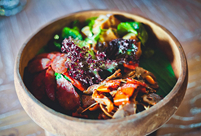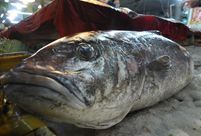 Army aviation: Adding wings to infantry
Army aviation: Adding wings to infantry
 Old photos of Chinese President Xi Jinping’s father and his families
Old photos of Chinese President Xi Jinping’s father and his families
 Bikini show in 2014 China Final of Miss Tourism World
Bikini show in 2014 China Final of Miss Tourism World
 Close-up view of August Aerobatic Team
Close-up view of August Aerobatic Team
 Goddesses married in 2014
Goddesses married in 2014
 Polar region photos raise worldwide awareness of global warming
Polar region photos raise worldwide awareness of global warming
 Get off at the last stop — Beijing Subway in vision
Get off at the last stop — Beijing Subway in vision
 Top 100 beauties in the world!
Top 100 beauties in the world!
 Gallery: Who is the most beautiful one?
Gallery: Who is the most beautiful one?
 If you like autumn, put your hands in the air!
If you like autumn, put your hands in the air!
LONG-TERM INSTITUTIONAL SETTINGS
In fact, the Chinese leadership has laid down institutional arrangements and plans for many other fields, which not only aim to achieve the goal of building an "all-round well-off society" by 2020, but also ensure the country's lasting stability.
The CPC adopted a comprehensive legal reform plan at a key meeting in October, which is regarded as a new roadmap for advancing rule of law in the world's second largest economy in the next five to ten years, or even longer.
It was the first time a plenary session of the CPC Central Committee had taken rule of law as its central theme.
During a central conference on ethnic affairs in September, the leaders stressed that "Unity is the lifeline of all ethnic groups," pledging more efforts to ensure leapfrog development in ethnic regions.
At a military political work conference held in a former revolutionary base in Gutian township in southeast China's Fujian Province in late October, Xi called for strengthened ideological and political work to build stronger armed forces.
Addressing authors, actors, script writers and dancers at a symposium in Beijing in mid-October, Xi said "Socialist culture and art is, in essence, the culture and art of the people." He asked the artists to learn from the people and base their creations on real lives.
ACTIVE DIPLOMACY
China reaped diplomatic harvest in 2014. On a tight schedule, Xi visited 18 countries on four continents in a total of 40-strong days.
Using the lion metaphor during his Europe tour in late March to explain China's features, Xi said the awakened China lion is a "peaceful, pleasant and civilized" creature, which has no intention to be a threat to anybody.
By rolling out new concepts and initiatives such as "the community of common destiny," "a new model of major-country relations," and a neighborhood policy featuring "amity, sincerity, mutual benefit and inclusiveness," Chinese leaders are forging a new diplomatic philosophy.
Meanwhile, about 50 countries along the ancient Silk Road have voiced willingness to participate in the "Belt and Road Initiative" put forward by China to foster common development.
The framework refers to the Silk Road Economic Belt and the 21st Century Maritime Silk Road, proposed by Xi Jinping during his overseas visits.
The planned Asian Infrastructure Investment Bank (AIIB) and the Silk Road fund set up by China will offer substantial support to the initiative.
Xie Chuntao, professor of the Party School of the CPC Central Committee, said generally speaking, the public have become more confident of their future since the new CPC leadership took the helm in late 2012.
"The policies and measures put forward by the central leadership have pooled a strong sense of cohesion," Xie said.
 |
 Tempting Yunnan cuisine
Tempting Yunnan cuisine Joint anti-piracy drill
Joint anti-piracy drill PLA conducts tactical drill in Tibet
PLA conducts tactical drill in Tibet Beautiful Chinese woman
Beautiful Chinese woman Chestnut girl goes viral online
Chestnut girl goes viral online Time travel photos become a hit in military academies
Time travel photos become a hit in military academies Unknown 'monster' fish caught in Shandong
Unknown 'monster' fish caught in Shandong 20 years on: Relocated Three Gorges residents through lens
20 years on: Relocated Three Gorges residents through lens PLA HK Garrison veterans leave behind beautiful smiles
PLA HK Garrison veterans leave behind beautiful smiles Occupational fatigue
Occupational fatigue A year of challenges and hope
A year of challenges and hope Orphans find musical refuge
Orphans find musical refuge The legacies of 2014 will long linger
The legacies of 2014 will long lingerDay|Week|Month